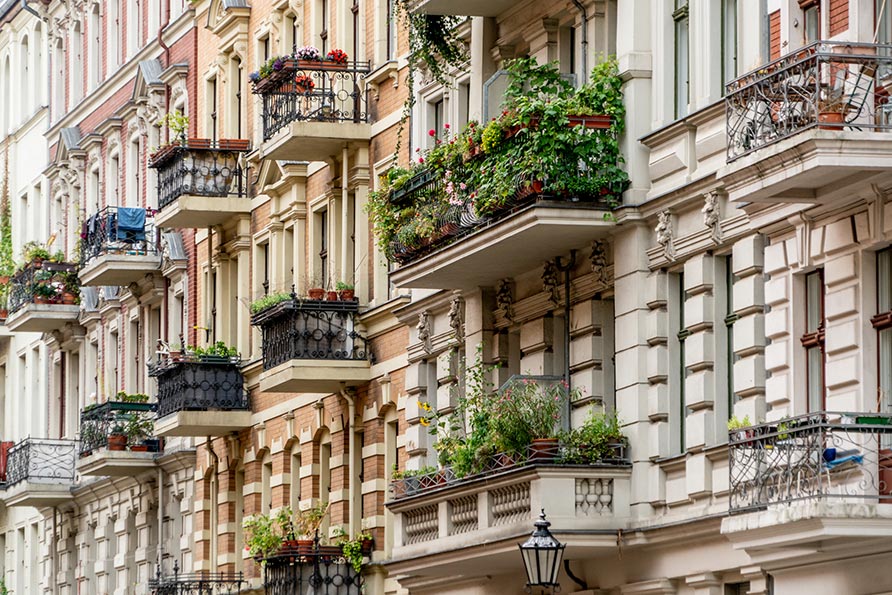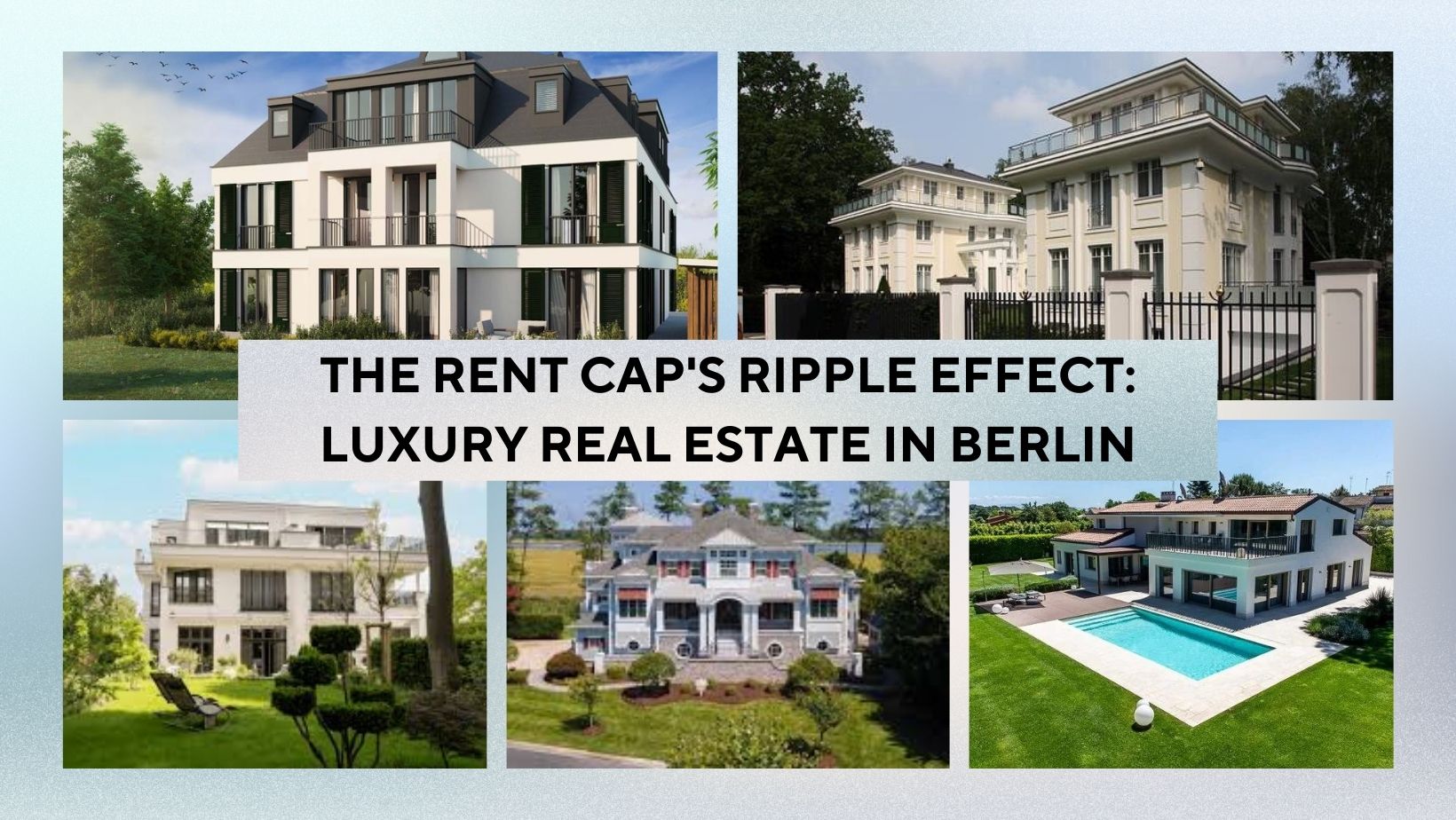In the bustling city of Berlin, the rent cap has caused quite a stir. It’s had a ripple effect, particularly on the luxury real estate market.
Now, you may be wondering, what exactly is this rent cap? Well, it’s a measure put in place by the government to regulate skyrocketing rental prices.
But here’s where things get interesting. This rent cap has not only impacted affordable housing, but it’s also had a significant impact on luxury real estate in Berlin.
So, if you’re curious to learn more about how this rent cap has affected the high-end property market in the German capital, buckle up and keep reading!

The Rent Cap’s Ripple Effect: Luxury Real Estate in Berlin
Luxury real estate in Berlin has been greatly impacted by the implementation of the rent cap policy. This legislation, known as the Rent Cap Law, was introduced to address the issue of skyrocketing rental prices in the city. While the intention behind the law was to provide relief to tenants, it has had far-reaching consequences for the luxury real estate market. In this article, we will explore the ripple effect of the rent cap on luxury real estate in Berlin and its implications for both buyers and sellers.
Effects on Luxury Property Prices
The rent cap policy has had a significant impact on the prices of luxury properties in Berlin. Due to the limitations on rental prices, property owners who were previously able to charge premium rents for their high-end properties are now facing restrictions. This has led to a decrease in the profitability of luxury real estate investments, as rental income can no longer reach the same levels as before.
Additionally, the rent cap has also affected the overall value of luxury properties. With rental incomes being limited, the potential for attractive rental yields has decreased, which may deter potential buyers from investing in luxury real estate in Berlin. This has resulted in a softening of the luxury property market and a decrease in property values.
Furthermore, the rental cap policy has contributed to a decline in new luxury property developments. With the decreased profitability and demand for luxury rentals, developers are less inclined to invest in high-end projects. This has led to a decrease in the supply of luxury properties, further impacting the market.
The Shift in Demand for Luxury Rentals vs. Purchases
The implementation of the rent cap policy has also caused a shift in the demand for luxury real estate in Berlin. While the rental market for luxury properties has become less attractive due to the limitations on rental prices, the demand for purchasing luxury properties has increased.
Buyers are now looking to capitalize on the decreased property values and potential for future appreciation. With the rent cap in place, luxury properties have become more accessible to those who were previously priced out of the market. As a result, there has been a surge in demand for luxury property purchases in Berlin.
This shift in demand has created a unique opportunity for investors and buyers to acquire high-end properties at more affordable prices. However, it is important to carefully consider the long-term implications of the rent cap policy and its potential effects on the market before making any investment decisions.
Benefits of the Rent Cap for Tenants
The rent cap policy in Berlin aims to provide relief to tenants who were struggling with exorbitant rental prices. For tenants of luxury properties, this policy has resulted in more stable and affordable rents. The limitations on rental prices ensure that tenants are not subjected to sudden increases, providing them with a sense of security and stability.
With the rent cap in place, tenants also have more negotiating power when it comes to lease renewals. They can use the policy as leverage to negotiate fair rental rates and ensure that they are not being taken advantage of by property owners.
Furthermore, the rent cap has also contributed to a more diverse and inclusive rental market. Luxury properties that were previously only accessible to a select few are now within reach for a wider range of tenants. This has helped to create a more equitable rental landscape in Berlin.
In conclusion, the rent cap policy in Berlin has had a significant ripple effect on the luxury real estate market. Property prices and values have been impacted, with a decrease in profitability and a shift in demand from luxury rentals to purchases. While the policy has provided benefits for tenants, it is important for buyers and sellers in the luxury real estate market to carefully evaluate the long-term implications before making any decisions. The rent cap’s effect on luxury real estate in Berlin continues to shape the market dynamics and investment opportunities in the city.
The Rent Cap’s Ripple Effect: Luxury Real Estate in Berlin
- The rent cap in Berlin is impacting the luxury real estate market.
- Increased regulations on rental prices have led to a decrease in demand for luxury properties.
- Investors may need to reconsider their strategies in the Berlin real estate market.
- Tenant protections can affect the profitability of luxury rental properties.
- The rent cap has caused a shift in the luxury real estate landscape in Berlin.
Frequently Asked Questions
In this section, we’ll answer some commonly asked questions about the rent cap’s ripple effect on luxury real estate in Berlin.
1. How does the rent cap affect luxury real estate in Berlin?
The rent cap implemented in Berlin puts a limit on the amount landlords can charge for rent, including luxury properties. This means that luxury real estate owners cannot increase rents as freely as they could before. While this may help protect tenants, it can also have a ripple effect on the luxury real estate market.
With limited rental income potential, some luxury property owners may choose to sell their properties instead. This can increase the supply of luxury real estate in the market, potentially leading to downward pressure on prices. On the other hand, some luxury property owners may choose to invest in renovations or upgrades to make their properties more attractive to potential buyers, compensating for the reduced rental income.
2. Will the rent cap lead to a decrease in the quality of luxury real estate in Berlin?
While the rent cap may impact the rental income potential for luxury real estate in Berlin, it does not necessarily mean a decrease in the quality of these properties. Luxury property owners may still have the motivation to maintain or even improve the quality of their properties to attract potential buyers. In fact, with reduced rental income, owners may be more incentivized to invest in upgrades and renovations to make their properties stand out.
Additionally, competition within the luxury real estate market in Berlin remains high. Property owners understand the importance of maintaining high-quality standards to attract affluent buyers who have specific expectations. Therefore, while the rent cap may have an impact on the luxury real estate market, it is unlikely to result in a significant decrease in property quality.
3. What are the potential implications of the rent cap on luxury real estate investors in Berlin?
The rent cap in Berlin can have implications for luxury real estate investors. With limited rental income potential, investors may need to adjust their expectations for returns on investment. The reduced rental income may result in a longer payback period for the initial investment, which could influence the decision-making process for potential investors.
However, it is important to note that Berlin still remains an attractive market for luxury real estate investments due to its vibrant cultural scene, economic growth, and strong demand for high-end properties. Investors may need to consider other factors, such as potential appreciation in property value and the long-term stability of the market, when making investment decisions in the context of the rent cap.
4. Are there any loopholes in the rent cap that luxury real estate owners can exploit?
The rent cap legislation in Berlin aims to minimize the potential for loopholes that can be exploited by landlords, including those who own luxury real estate. The legislation sets clear guidelines and restrictions on rent increases, ensuring that all properties, regardless of their luxury status, are subject to the same regulations.
However, it is important to note that there may still be certain legal strategies that luxury real estate owners can employ to navigate the rent cap. For example, owners may focus on maximizing the value of their properties through renovations and upgrades to compensate for the limited rental income potential. It is crucial that luxury property owners consult with legal professionals or experts who specialize in real estate and rental laws to ensure compliance with the legislation while optimizing their investment.
5. How has the rent cap affected the demand for luxury real estate in Berlin?
The introduction of the rent cap in Berlin has had mixed effects on the demand for luxury real estate. On one hand, the rent cap may make renting luxury properties more affordable for tenants, potentially increasing demand. However, on the other hand, the reduced rental income potential may deter some luxury property owners from renting out their properties, leading to a decrease in available luxury rentals.
Additionally, the potential decrease in rental income may shift the investment focus towards ownership, as luxury real estate owners aim to generate returns through property appreciation rather than rental income. Overall, the rent cap’s impact on demand for luxury real estate in Berlin may vary depending on various factors, including the specific location, property characteristics, and the preferences of potential buyers and tenants.
Here’s why so many Germans rent instead of buying their homes
Summary
Rent caps in Berlin are causing problems for luxury real estate owners and investors. The new law limits rent prices, making it harder for them to make a profit.
This has led to a decrease in investment and maintenance in luxury properties. Many owners are considering selling their properties, which could result in fewer options for people looking for high-end rentals.





